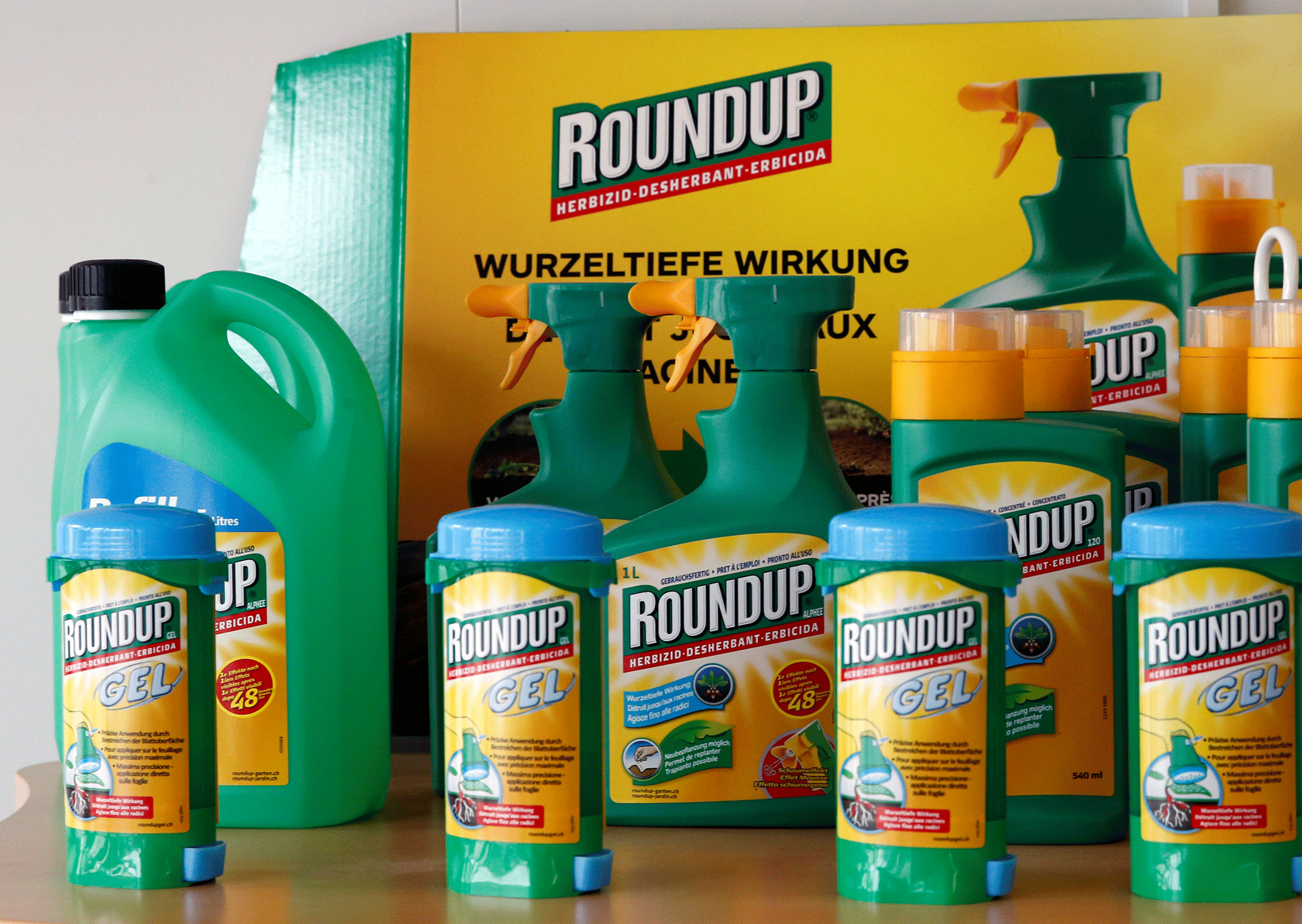Controversial weedkiller in Roundup 'does not cause cancer', says European expert committee
'The overwhelming weight of evidence shows that glyphosate poses no risk to human health when used correctly,' says farmers' leader

Your support helps us to tell the story
From reproductive rights to climate change to Big Tech, The Independent is on the ground when the story is developing. Whether it's investigating the financials of Elon Musk's pro-Trump PAC or producing our latest documentary, 'The A Word', which shines a light on the American women fighting for reproductive rights, we know how important it is to parse out the facts from the messaging.
At such a critical moment in US history, we need reporters on the ground. Your donation allows us to keep sending journalists to speak to both sides of the story.
The Independent is trusted by Americans across the entire political spectrum. And unlike many other quality news outlets, we choose not to lock Americans out of our reporting and analysis with paywalls. We believe quality journalism should be available to everyone, paid for by those who can afford it.
Your support makes all the difference.The weedkiller glyphosate – the main ingredient of Roundup – does not cause cancer, a European Union expert committee has controversially concluded.
The European Chemicals Agency’s Committee for Risk Assessment said it had agreed to restrict warnings to the current advice that it can cause “serious eye damage” and is “toxic to aquatic life with long-lasting effects”.
The committee, known as the RAC, “concluded that the available scientific evidence did not meet the criteria to classify glyphosate as a carcinogen, as a mutagen or as toxic for reproduction”.
Its opinion will now be checked and then sent to the European Commission, which will make a final decision on whether to relicense glyphosate for use for a further 15 years.
“The adopted opinion … will be taken into account when the Commission and Member States consider whether to renew the approval to use glyphosate as an active substance in pesticides, later this year,” the ECHA said in a statement.
In 2015, the World Health Organisation’s cancer agency said that it believed glyphosate “probably” caused cancer in a decision that sent shockwaves through the farming and herbicide industries.
However, since then, a number of other expert bodies, including the US Environmental Protection Agency, announced they had concluded this was not the case.
Glyphosate has also been linked to harmful but sub-lethal effects on bees.
Guy Smith, the vice-president of the National Farmers Union, welcomed the ECHA’s decision.
“The overwhelming weight of evidence shows that glyphosate poses no risk to human health when used correctly,” he said.
“This opinion is shared by regulatory bodies around the world, including the World Health Organisation, the Food and Agriculture Organisation of the UN and the European Food Safety Authority.
“Glyphosate plays a vital role in agriculture in the UK and around the world. It reduces the need to use other herbicides, it helps to protect soil and cut greenhouse gas emissions by reducing the need for ploughing, and it enables farmers in this country to grow crops that help produce safe, affordable, high quality British food.”
Mr Smith said the European Commission now had “no reason” not to relicense glyphosate.
However Greenpeace EU’s food policy director Franziska Achterberg insisted glyphosate was dangerous.
“The data vastly exceeds what’s legally necessary for the EU to ban glyphosate, but ECHA has looked the other way,” she said.
“For the EU to make decisions based on science, it can’t distort the facts.
“If the EU doesn’t get this right, people and the environment will continue to be the lab rats of the chemical industry.”
However the announcement was welcomed by two leading scientists.
Professor Jan Hengstler, of the Leibniz Research Centre for Working Environment and Human Factors in Dortmund, said the ECHA’s conclusion was “scientifically justified”.
“Both the available long-term studies in rats and mice as well as epidemiological data do not justify the conclusion that glyphosate is carcinogenic or mutagenic,” he said.
“Under current conditions of use of glyphosate there is no increased cancer risk for humans.
“Compared to other herbicides, a relatively large number of studies is available on the substance glyphosate, so that a comparatively good assessment with regard to the carcinogenic risk is possible.
“The conclusion of the ECHA is not surprising, since no new studies were available compared to earlier evaluations.”
And Professor Alan Boobis, a biochemical Pharmacologist at Imperial College London, said: “ECHA are to be congratulated on their critical evaluation of a large and complex dataset on glyphosate.
“They have concluded that the totality of the evidence is that glyphosate should not be considered a human carcinogen.
“It is important that such objective, independent and comprehensive assessments are available to help policy makers in reaching evidence-based decisions.”
Join our commenting forum
Join thought-provoking conversations, follow other Independent readers and see their replies
Comments